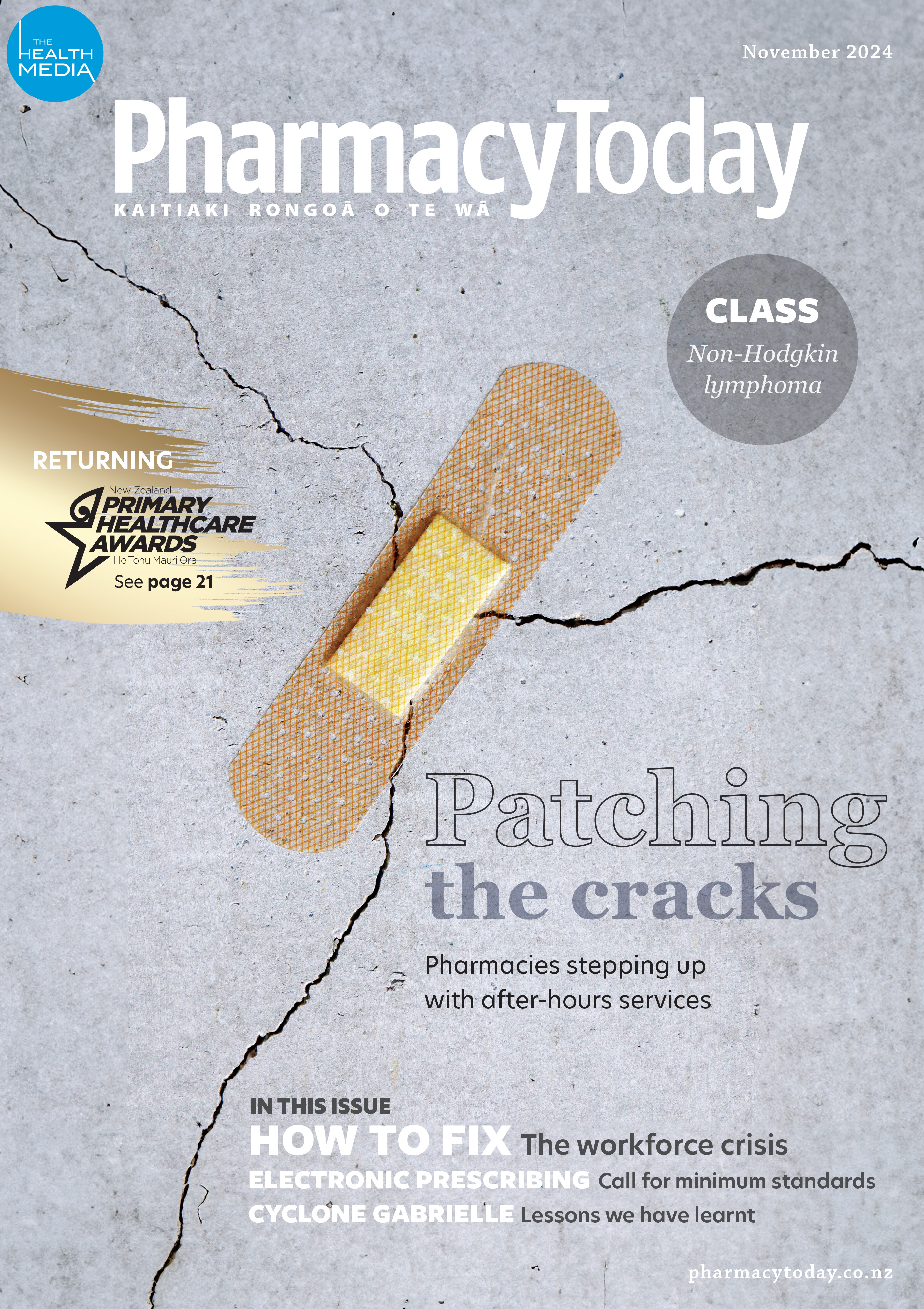Academic pharmacist Nataly Martini highlights the importance of understanding non-Hodgkin lymphoma and pharmacists’ roles in managing this condition
Independent pharmacists and Te Whatu Ora clash in the High Court
Independent pharmacists and Te Whatu Ora clash in the High Court

Here at Pharmacy Today we are on our summer break! While we're gone, check out Summer Hiatus: Stories we think deserve to be read again!
The court action over former DHB licensing of Countdown pharmacies was one of the big stories of the year, when a group of pharmacy owners took the DHBs (now Te Whatu Ora) to the High Court
Effective control requires you to be able to make decisions
No fewer than 14 lawyers hashed out the particulars of a dispute over pharmacy licensing and contracting between Te Whatu Ora, the Ministry of Health and the Independent Community Pharmacy Group at a High Court hearing in Wellington last month.
The group (ICPG), which represents more than 100 pharmacy owners, is seeking a judicial review of the ministry’s interpretation of requirements around effective control of pharmacies when granting a pharmacy licence, and decisions by Te Whatu Ora (formerly Hutt Valley and Tairāwhiti DHBs) to grant licences to two Countdown pharmacies.
The court, presided over by Justice Cheryl Gwyn, heard that ownership of various Countdown pharmacies is divided between several companies registered as GDL RX 1 to GDL RX 9.
Pharmacists hold more than 51 per cent of these companies but the constitutions and shareholder agreements create a situation where the pharmacist owners cannot make any changes to the businesses without approval from the corporate shareholder, Countdown. However, pharmacist owners can block Countdown from making any changes they do not agree with.
According to Medicines Control testimony, this means owners have “negative control”, which it determined was enough to satisfy effective control requirements.
Speaking on behalf of ICPG, solicitor Robert Kirkness argued the ministry has incorrectly interpreted the effective control rules required by the Medicines Act.
“Effective control requires you to be able to make decisions,” Mr Kirkness says, adding that, according to affidavits from ICPG members, pharmacy owners need to be free to make decisions on contracting, services offered, reducing business hours and closing.
In a response for the ministry, barrister Rachael Schmidt-McCleave submitted that the ministry’s Medicines Control arm had some discretion in its decision to grant the licences and arrived at lawful and reasonable decisions.
There is no statutory definition of “effective control”, Ms Schmidt-McCleave says. Instead, there is a range of accepted definitions, including negative control.
The ICPG argued that when the Hutt Valley and Tairāwhiti DHBs considered contract applications from Countdown, they did not identify that zero script fees was a corporate loss-leading strategy and did not properly consider possible risks and unintended consequences.
Instead, decision makers assumed free prescriptions would automatically reduce health inequities.
Mr Kirkness says the group is not claiming that free prescriptions cannot reduce inequity, just that a wider investigation would be required to make this claim.
Representing Te Whatu Ora, solicitor Dale La Hood argued there is no required level of evidence that decision-makers must meet, and his client need only prove decisions were made on a rational basis.
In the case of Wainuiomata Countdown, which was granted a licence last year, the Hutt Valley DHB panel initially voted 4–1 to decline the application. Panel members were concerned the pharmacy did not have enough staff to stay open for the longer hours it promised.
But the panel vote was overturned by Rachel Haggerty, then director strategy, planning and performance for the Hutt Valley and Capital and Coast DHBs. She said at the time, the free scripts provided by Countdown would improve equity of access to medicines.
Mr La Hood says Ms Haggerty is an experienced decision-maker who is well informed about the demographics of Wainuiomata, which has a Māori population of 46 per cent and high levels of deprivation.
He says it was logical for her to believe that allowing the opening of a Countdown Pharmacy, which offers weekend and evening hours and does not charge the $5 copayment, would improve access to medicines.
Mr La Hood also accused ICPG of being motivated by concern over competition from discount pharmacies, and asked Justice Gwyn to discount their claims because of this.
“Their main concern is not about public health, but that they are disappointed that there is a competitor offering discount pharmacy services in their area.”
In response, Mr Kirkness read excerpts from affidavits from several ICPG members about why they joined the case. They all considered themselves health professionals first and business owners second and they were worried about discount pharmacies having an impact on the ability of other pharmacies to offer highquality health services, by making them less financially viable.
The court heard that in Wainuiomata, prescription numbers at the other two pharmacies have not fallen since Countdown Pharmacy opened, but Mr Kirkness argued this was because of an extraordinarily large workload as a result of the pandemic.
ICPG also asserts the DHB decisions were not taken in accordance with the principles of Te Tiriti o Waitangi.
Lawyer Natalie Coates (Ngāti Awa, Ngāti Hine, Ngāti Tūwharetoa, Tūhourangi, Tūhoe, Te Whānau a Apanui) told the court the DHBs had an obligation to be well informed on Māori health outcomes and to consult with Māori on the contracting decisions, but had not done so.
In response, Te Whatu Ora’s legal team argued that, in the case of Hutt Valley, while consultation had not occurred on the Countdown contract, Māori were consulted in depth when creating the higher policy documents that informed the decision. In addition, the DHB’s former Māori Health director Kiri Waldegrave had strongly supported Ms Haggerty’s decision.
In Tairāwhiti, Māori representatives were involved in the panels that considered the contract.
Ms Coates said claiming a Māori staff member was involved in the decisionmaking was not sufficient for the Hutt Valley DHB to claim partnership with Māori, and it was unfair to place that burden on the staff member.
The case was scheduled for 21 to 23 November but the final day was postponed until 29 November, due to Justice Gwyn falling ill. Her decision on the case is expected next year.
We're publishing this article as a FREE READ so it is FREE to read and EASY to share more widely. Please support us and the hard work of our journalists by clicking here and subscribing to our publication and website





